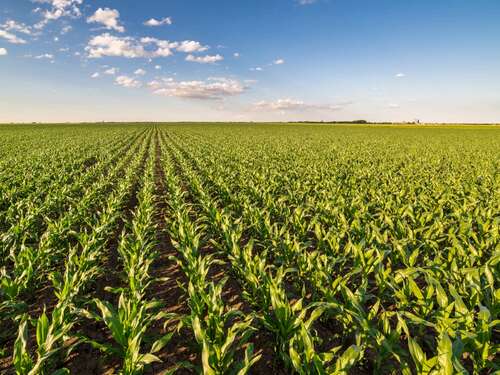
The EU’s Booster project is working on genetic and biostimulant strategies to create ‘climate-smart agriculture’.
Irish biotech company BioAtlantis has confirmed its involvement in an international research project that aims to make climate-resistant cereal crops.
The four-year project aims to improve drought tolerance in maize and teff, while exploring the potential for transferring drought responsive features between different crop species. The overall goal is to develop “climate-smart agriculture”.
The EU project is called Booster and has expected funding of €4.9m, supported by the bloc’s Horizon Europe programme. There are 14 organisations partnered with the project, including academics from Europe, the US, South Africa and Ethiopia.
Two main strategies are being implemented to achieve the project’s goals. One of these strategies involves creating novel ‘molecular priming’ technologies, with a combination of seaweed and microbial biostimulants. These biostimulants will be based on those found in the soil of regions associated with drought.
BioAtlantis is one of the companies working on these molecular priming technologies, along with Belgium’s Aphea.Bio.
Secondly, Booster aims to use a new approach to identify genomic variants in crops that are in regions that are associated with drought tolerance. These will be used with new breeding efforts to make new varieties of crops that are resistant to drought.
Both of these strategies will be tested on European maize and Ethiopian teff, which the team described as cereals that have different degrees of responsiveness to drought. The project also plans to use extracts from brown algae as a biostimulant to improve drought responses.
“By using teff, a relatively drought-tolerant species, and maize, a drought-sensitive cereal model species, Booster will identify the different mechanisms adopted by the two cereals to cope with drought,” it says on the project website. “In addition, the comparison with teff will offer the unique opportunity to gain insights into the differences with desiccation-tolerant cereals.”
Founded by chartered accountant John O’Sullivan in 2004, BioAtlantis received substantial early investments from the Bank of Ireland Kernel Capital Fund. The company currently employs more than 50 people at its Tralee headquarters.
BioAtlantis joined the CropPrime consortium earlier this year, which aims to develop new ways to protect crops against stressful weather conditions such as drought, heat, cold and water-logging.
Earlier this month, data from the EU’s Climate Change Service, Copernicus, suggests September 2023 was the hottest on record. It also looks like 2023 could be the hottest year ever recorded.
10 things you need to know direct to your inbox every weekday. Sign up for the Daily Brief, Silicon Republic’s digest of essential sci-tech news.

